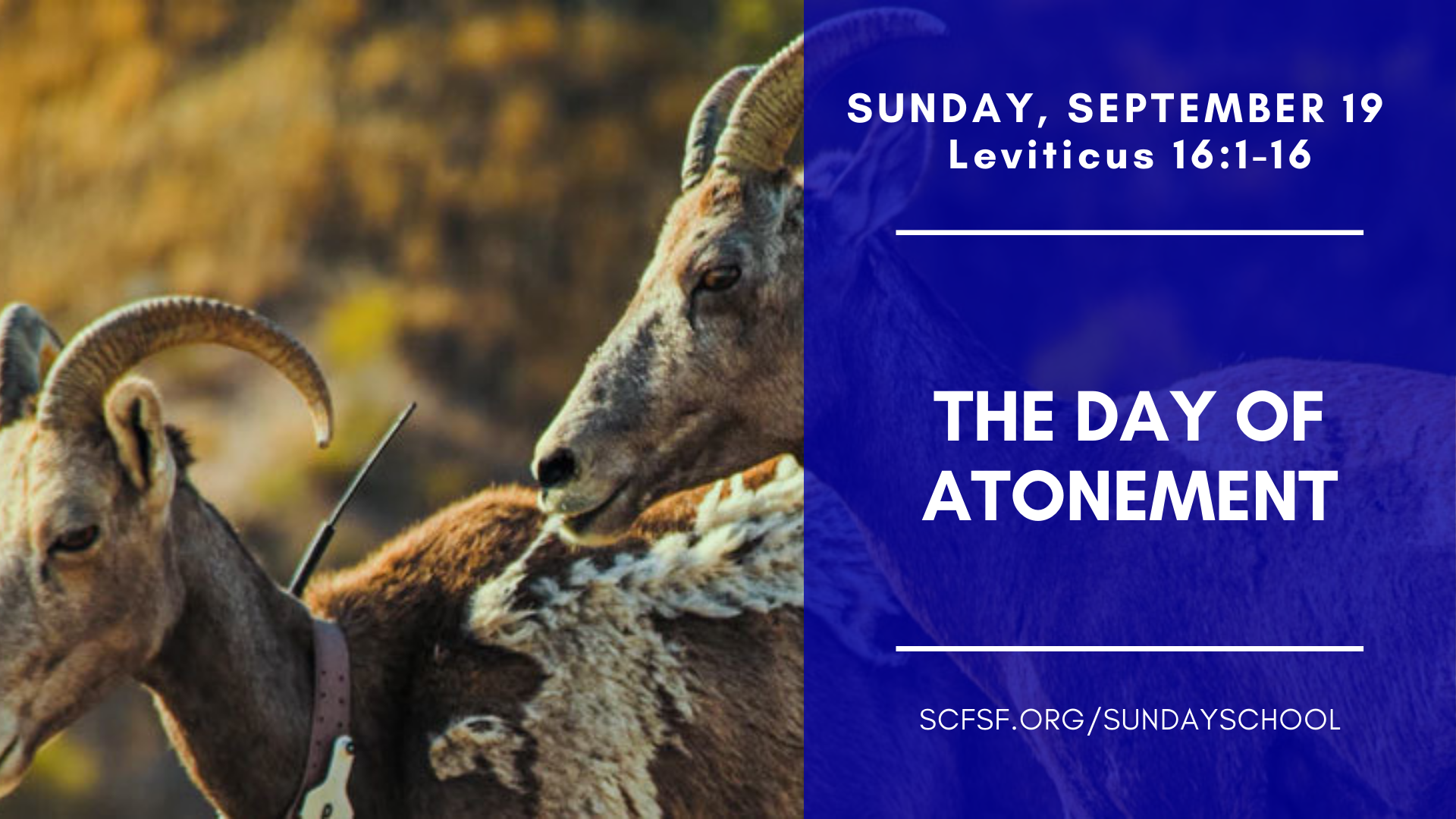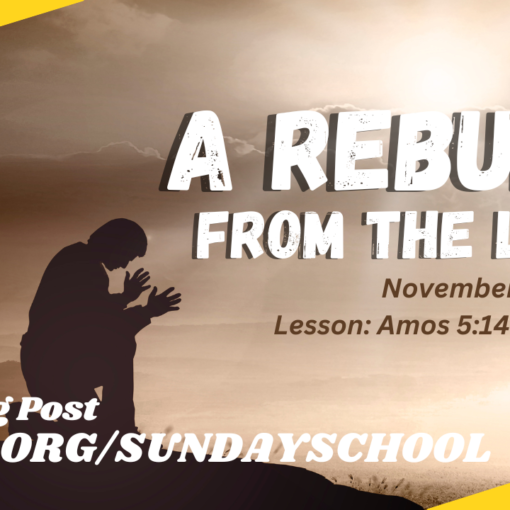
Scriptures
By Elder Janice Hall
Lesson Text: Leviticus 16:1-16
Related Scriptures: Leviticus 23:26-32; Numbers 29: 7-11;
Romans 3: 21-26; Hebrews 10: 4-22; Isaiah 53; 4-10
In Leviticus 16:1-16, we see the order of how the Atonement ordinance should proceed. Aaron must make atonement for himself and his family, and then do so for the children of Israel also. This week’s text is also the traditional reading in the Jewish synagogue on the morning of Yom Kippur.
In Leviticus 23: 26-32, gives us the instructions that Israel were supposed to follow on that day. They were to gather (holy convocation), fast, turn their focus to God, present a food offering, which in turn provided a day of rest. Again in Numbers 29: 7-11, speaks of offerings on the Day of Atonement. This was a day to carefully consider the burden of sin and to put it away.
In Romans 3:21-26, God has now revealed the means by which humanity can conform to his standard,” through faith in Jesus Christ”, and it is for everyone who believes. This status of righteousness is all possible “through the redemption that is in Christ Jesus, whom God put forward as a propitiation by his blood, to be received by faith”. Hebrews 10: 4-22, speaks of Christ’s effective sacrifice and the exhortation to continue in faithfulness and expectancy. Jesus sat down at the right hand of God, having finished His work. Isaiah 53: 4-10, shows what the Prophet Isaiah has in view of how the Messiah took our pain upon Himself, for the healing is found in the suffering of Jesus, and “by His stripes we are healed”.
Synopsis
By Elder Janice Hall
Yom Kippur or the Day of Atonement is the highest holy day of the Jewish calendar. In the Old Testament, the High Priest made an atoning sacrifice for the sin of the people on the Day of Atonement. The act of paying the penalty for sin brought a restored relationship between the people and God. This day reminded Israel of their need for salvation and their need for God.
In our lesson text, Leviticus 16: 1-16, Moses is recorded giving the Lord’s instruction to Aaron and how he was to enter the holy place. Aaron is warned not to act as his sons, or he would meet the same fate. The word Atonement means to cover over one’s debt, or take action to correct previous wrongdoings. Therefore Aaron was to comply to specific instructions for that day. The Day of Atonement was a time for each Israelite to reflect on his own sinfulness and to respond with mourning and repentance.
Aaron was to atone for himself and his entire family. He was to enter the Holy Tabernacle, after he washed and put on his sacred attire, made of linen. Next, Aaron was to bring a sin offering (a bull) and a burnt offering (a ram) to be sanctified at the altar. The Israelites were directed to give him two male goats, one would be considered a godly sacrifice and the other a “scapegoat”. In the Day of Atonement we are reminded and behold the supreme holiness of God and understand His mercy and grace.
Practical Application
By Brother Marsal Arnwine
The filth that comes from human sin is corruptive by nature and has a contaminating effect. However, in God’s grace He has provided a permanent atonement for our sin: the blood of His Son, Jesus Christ, who removes, not just covers, our sins. For disciples of Jesus, it makes logical sense the importance of Jesus dying on the cross for our sins, but there is another magnitude of reverence that can be under-appreciated if we do not understand the depth of Jesus’ atonement for the world. Today’s lesson text explores the crucial aspects of knowing the importance of atonement and forgiveness in order to gain a greater appreciation for God’s holiness and mercy. To properly view God’s forgiveness and His holiness, we must understand both our responsibilities to God’s holy standards and His merciful ways.
In understanding God’s holiness we must not take God and His blessings for granted but approach Him with the proper, and humble attitude. For example, Leviticus 16:2 describes the Lord telling Moses to deliver a message to his brother Aaron that he cannot come whenever he wants into the holy place or else he would die, because God’s presence was there. This text shows that there is a proper way to approach God’s holiness. If we are to worship and serve the Lord in holiness, we need to give careful thought as individuals and as a congregation to why and how we do this. One practical way to properly approach God is to prepare your heart by confessing your sins and asking for forgiveness before meeting for weekly corporate worship.
Further, Leviticus 16:6-16 describes the importance of completely following the instructions on how to enter God’s holiness. In the lesson text, Aaron was instructed on exactly what to do to enter the holy place and when to do it. As we seek to live out our faith, God’s forgiveness and His holy standards give us much-needed guidance and assurance. Remember, Jesus dealt with our sin once and for all on the cross. Because God’s holiness and blood sacrifice for us is unfathomable, He deserves our everlasting praise!



